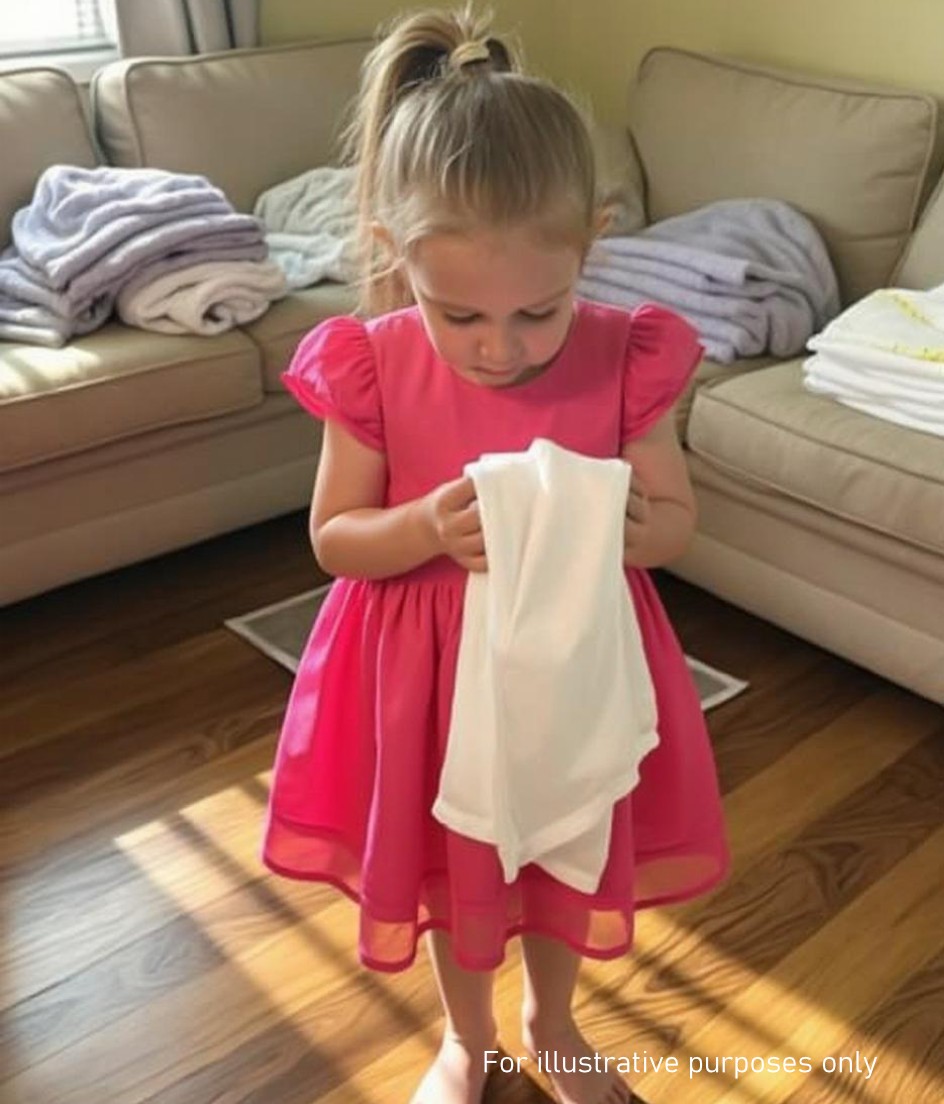At first, I thought it was sweet that my fiancé’s seven-year-old daughter Sophie would wake up before anyone else to make breakfast and tidy the house. I figured she was just an unusually helpful kid, maybe trying to impress me or enjoy a grown-up routine. But as days turned into weeks and I kept finding her mixing pancake batter at sunrise or carefully measuring out coffee like a little barista, I started feeling uneasy.

Most kids her age were still in bed dreaming about cartoons or unicorns, but Sophie was running around like a miniature housewife, cooking, cleaning, and making sure everything looked perfect before her dad and I even opened our eyes. I tried to tell myself it was just a phase, maybe something she found fun. But something about the intensity of her routine didn’t sit right. She moved like she was on a mission, and not in a playful, childlike way. One morning, I watched her pour hot coffee into cups with steady hands and an overly practiced smile. When I gently told her she didn’t have to do all that and encouraged her to sleep in, she shook her head so hard her pigtails flew. “I like doing it,” she insisted, voice tight with urgency. It felt more like fear than joy. Then David, my fiancé, came in yawning and complimented her. “Thanks, princess.
You’re turning into quite the little homemaker,” he said, barely looking up from his phone. Sophie lit up at his words, and my stomach turned. That single word—homemaker—hung in the air like a bad smell. This kept happening. Every morning, she was up first, running herself ragged while we slept, while David praised her and I worried silently. I began to notice more signs: dark circles under her eyes, the way she flinched slightly when she dropped something, as if she feared punishment. Something deeper was going on, and I needed to know what it was. One morning, I knelt beside her while she wiped the table and gently asked why she worked so hard. Her shoulders stiffened, and she scrubbed at the surface like there was something there she could never quite clean. I took the cloth from her and asked again, this time more directly.
After a long pause, she said, almost too quietly to hear, “I heard Daddy say to Uncle Ben that no one will love or marry a woman unless she wakes up early, cooks, and does all the chores. I’m scared if I don’t, Daddy won’t love me anymore.” Her words knocked the air out of me. I couldn’t believe what I was hearing. A seven-year-old child was carrying the burden of her father’s careless, outdated comment—trying to prove her worth through chores and breakfast spreads.
That night, I made up my mind. If David couldn’t see the damage those words had done, I’d show him. The next morning, I wheeled the lawn mower out of the garage and asked him to mow the lawn. He agreed with a shrug.
The following day, I handed him laundry and asked him to fold and wash windows. By day three, I had him cleaning gutters. Finally, he looked at me, confused and a little annoyed. “What’s going on?” he asked. “You’ve got me doing more chores than usual.” I smiled sweetly and said, “Just making sure you stay useful. After all, if you’re not pulling your weight, why would I marry you?” He froze. “What? Are you serious?” That was when I laid it all out. I told him Sophie was waking up every day terrified that his love was conditional—based on how much she did for him. That she thought if she didn’t cook or clean, he wouldn’t want her. He tried to backpedal, but I stopped him.
“Intent doesn’t matter,” I said. “What matters is what she heard, what she believes now, and how that belief is shaping her.” He looked stunned, then ashamed, and finally resolved. Later that night, I listened from the hallway as he knocked on Sophie’s door. “Sweetheart,” he said softly, “I want to talk to you. What you heard me say wasn’t right. You don’t have to earn my love. I love you because you’re you. Even if you never cook breakfast again.” Her voice was small and trembling. “Really?” “Really,” he said, voice cracking. “You’re perfect just as you are.” In the days that followed, I noticed changes. David began taking on more chores without being asked. He watched his words more carefully.
And Sophie began to relax—sleeping in, playing more, and smiling in a way that felt genuine, not forced. I realized love isn’t proven through perfection or effort; it’s shown in how we protect each other, in the conversations we’re willing to have, and the cycles we’re brave enough to break. Sitting at the breakfast table one morning, with no one rushing to earn their place, I looked around and thought, this is what family is supposed to feel like. That old-school thinking? Not in my house.





